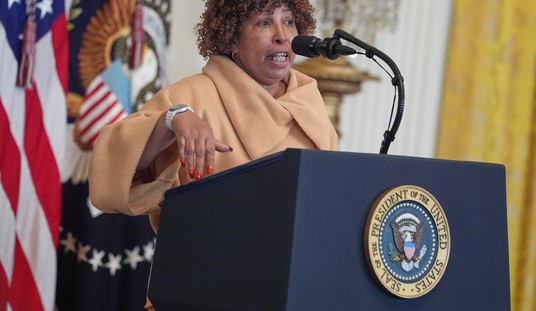(The opinions expressed in guest op-eds are those of the writer and do not necessarily represent the views of RedState.com.)
With the midterm elections less than a week away, political campaigns are not coming to a hospital near you. They are already there, and they’re in your medical chart, too.
This summer, the American Medical Association (AMA) adopted a resolution making voting status a “social determinant of health.” The resolution links voting to health outcomes, which clears the way for public resources to be used in hospitals and medical charts for political purposes. The resolution asserts, “Voting in ages 18-24 is associated with fewer risky health behaviors by instilling a sense of self-efficacy and increasing social connectedness.” Woke institutions like the AMA are using laughably circuitous correlations like this to justify campaigning in the exam room.
Let’s say you managed to lacerate your hand carving a pumpkin. After three hours waiting in the emergency room, in pops a medical student with a “Ready to Vote” badge, complete with a QR code for you to scan. Rather than disinfect and suture your throbbing hand, the medical student says “I’d like to check if you are ready to vote.” He remembered that line from Vot-ER’s “conversation starters” for medical providers.
“Vot-ER” is a nonprofit organization started in 2020 to give doctors the opportunity to engage patients about voting. In 2022, Vot-ER programs are in “over 500 hospitals and clinics and helped tens of thousands of Americans register and order mail-in ballots.” As Dr. Shane Borkowski, a physician at Illinois Health Science System put it, “You’re just giving them the opportunity to use that wait time to do something.”
Proponents seem unable to grasp just how inappropriate and creepy this is. Dr. Daria Terrell, an orthopedic surgeon at St. Bernard Hospital in Englewood, Illinois says, “I bring the topic up sometimes as a part of taking a social history.” So, patients should be prepared to answer questions such as, “Do you smoke? Do you drink? Are you registered to vote?” No patient should feel pressured to vote in a certain way (or vote at all) in order to gain the approval of the person standing between them and their health care.
That danger of bias could tilt toward any political party. However, the AMA resolution specifically targets 12 Republican-led states that favor access to private health insurance over government-run alternatives, by accusing the states of gerrymandering to “manipulate the voice of the people.”
Designating voting a social determinant of health (SDOH) could allow your healthcare provider to record your voting information right in your electronic medical record under what is called a “z-code.” That’s where doctors now record subjective SDOH like family structure and housing. Coding nosey political information in the z-code section of your chart can, according to the Centers for Medicare and Medicaid Services, “trigger referrals to social services that meet an individual’s need.”
Vot-ER fan Dr. Rashid Kysia, an emergency medicine physician at Cook County Health said, “Our patient population is poor, and they’re disproportionately affected by issues that often they’re not voting for.”
Sorry, Dr. Kysia. In fact, they are just not voting the way you think they should. Dr. Kysia should have the same special influence over his poor patient’s ballot as he has over any other American’s vote: exactly zero.
Matt Dean ([email protected]) is Senior Fellow for Health Care Policy Outreach at The Heartland Institute.













Join the conversation as a VIP Member